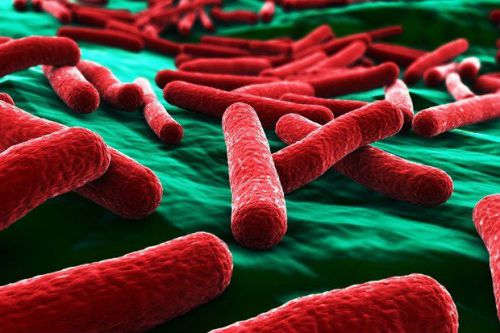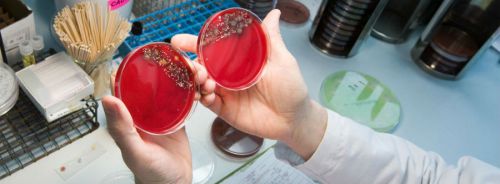Kidney infection and its treatment
The reproductive system is very closely connected with the kidneys, for this reason they are combined into the genitourinary system. It often happens that they have the same infections.
Types of infections
The resulting kidney infection can be specific and non-specific:
- A specific infection in the kidneys is associated with pathogens that are sexually transmitted (gonococcus, trichomonas, ureaplasma). The cause of the disease is clear. This is unprotected sex. In men, the infection immediately enters the urethra, and from there to the overlying zones of the genitourinary system. In women, the infection from the vagina enters the urethra and then moves along the same path of the genitourinary system. Infections must be treated, as quite dangerous complications are possible.
- Non-specific. Such infections include staphylococcus aureus, E. coli, streptococcus, enterococcus, Candida fungus and others.
A kidney infection can spread in several ways:
- Ascending path - from the urethra and rectum during sexual contact.
- Descending - passes from the pelvis of the kidneys down the ureters.
- Hematogenous way - brought by blood flow from other areas.

Escherichia coli is a common causative agent of kidney infections.
Causes
When an infection enters the human body, the kidneys are the first to suffer as they try to expel it.
A weakened body cannot always cope with such a problem, so the kidneys become infected and need adequate treatment.
The most common causes of kidney infections are:
- Urolithiasis disease.
- Anemia.
- Penetration through the circulatory system.
- Diabetes.
- Low immunity.
- Inflammatory processes in other organs.
Also, kidney damage can be associated with diseases of the gastrointestinal tract, uterus. Even dental caries can cause infection. Also here can be attributed hypothermia of the body and incorrect therapy for colds.
Symptoms of a kidney infection
You can find out the presence of infectious inflammation in the kidneys by the following signs:
- General malaise.
- Pain in the lower back, abdomen and groin.
- Temperature rise.
- Frequent urination.
- Urine is excreted little, it does not come out completely.
- Nausea.
- Loss of appetite.
- Itching and sometimes sharp pain when urinating.
- Swelling of the face.
- The color and smell of urine changes.
- Presence.

Lower back pain is a frequent companion of a kidney infection
The most common diseases:
- Pyelonephritis is an inflammatory process in the kidneys as a result of the penetration of microorganisms. In addition, other pathologies are accompanied (for example, reduced immunity, kidney stones, hypothermia, the presence of inflammation in the adrenal glands and other ailments).
- Glomerulonephritis- an inflammatory process of the renal glomeruli, which develops against the background of an infectious allergy or due to the production of antibodies to one's own organ. It is more common in children and young adults (under 30 years of age).
In an infant, infections in the kidneys are more difficult and, due to weak immunity, are treated much worse. For this reason, it is necessary to consult a doctor when the first signs appear. The first symptoms will be changes in the color of urine and fever. In addition, the child becomes capricious, sleeps poorly, refuses to eat, does not gain weight.
During pregnancy, kidney and urinary tract infections are quite common. Since the enlarged uterus compresses the organs of the genitourinary system, thereby creating good conditions for the occurrence of pyelonephritis. Signs of it are more pronounced in a pregnant woman, and complications are more common. Therefore, in order to avoid infection of the fetus and premature birth, the woman is placed in a hospital where she undergoes treatment.

Pregnant women have an increased risk of developing a kidney infection
Diagnostics
First of all, the patient's history is collected, an examination is performed, and a urine test is taken to find out if there is a bacterial infection.
With complications of pyelonephritis, the patient is placed on inpatient treatment. It is also mandatory to take a blood sample for a general analysis. The kidneys are checked for the presence of stones using ultrasound or x-rays.
If the infection is protracted, then complications such as abscess, swelling of the kidney, blood poisoning (the infection enters the bloodstream) can occur. Symptoms of complications are pronounced, they can not be overlooked. The occurrence of acute pathologies is more susceptible to people who have concomitant diseases.
There are also several categories of people who are at risk of complications:
- Pregnant women.
- Elderly people.
- With diabetes.
- With chronic kidney disease.
- With weak immunity.

Bacteriological urine culture is the only way to identify the causative agent of a kidney infection
Treatment
For all infectious diseases associated with the kidneys, antibacterial, anti-inflammatory and symptomatic treatment is prescribed. The following medications are prescribed:
- Antibiotics - first, broad-spectrum drugs are prescribed, and when the causative agent of the disease is established, an individually selected remedy is prescribed.
- Disinfection solutions intravenously - cleanse the body and blood.
- Anti-inflammatory drugs - to eliminate inflammatory processes. That allows for a short period of time to improve the patient's condition.
- Diuretics - to improve the performance of the kidneys and prevent stagnation of urine. For this, diuretics are prescribed.
- Antihypertensive drugs - to normalize pressure, as a rule, lower it.
- Antispasmodics - relieve spasms and improve urine flow in urinary tract infections.
- Painkillers - relieve pain.
- Antipyretics - to lower body temperature.
In the presence of chronic forms of pyelonephritis, constant relapses are observed, so it is necessary to remove the primary focus of the disease. For this, either surgical or complex therapy is used.
Surgical intervention is urgently performed if available.
During the operation, the entire kidney or part of it is removed, then a drain is installed to ensure the release of pus.
![]()
Antibiotics are the mainstay of treatment for any kidney infection.
ethnoscience
Milder forms of pyelonephritis can be treated at home. Also, during treatment, you need to follow a diet that includes a small intake of salt, it is also necessary to exclude protein foods.
As an additional measure, traditional medicine recipes are often used:
- It is necessary to drink at least two liters of water per day, which will increase the amount of urine output, which removes bacteria from the body.
- 2-3 times a day, drink a glass of water with a spoonful of soda dissolved in it, this will make it possible to cleanse the body of toxins.
- Eating blueberry mousse will help remove pathogenic bacteria from the body.
- Add a spoonful of vinegar to a glass of water and drink in the morning on an empty stomach. This recipe helps to stop the inflammatory process and improve digestion.
Infectious processes in the kidneys must be treated without fail in order to avoid chronic forms of the disease, which often lead to kidney failure, and sometimes can cause a person's disability.




